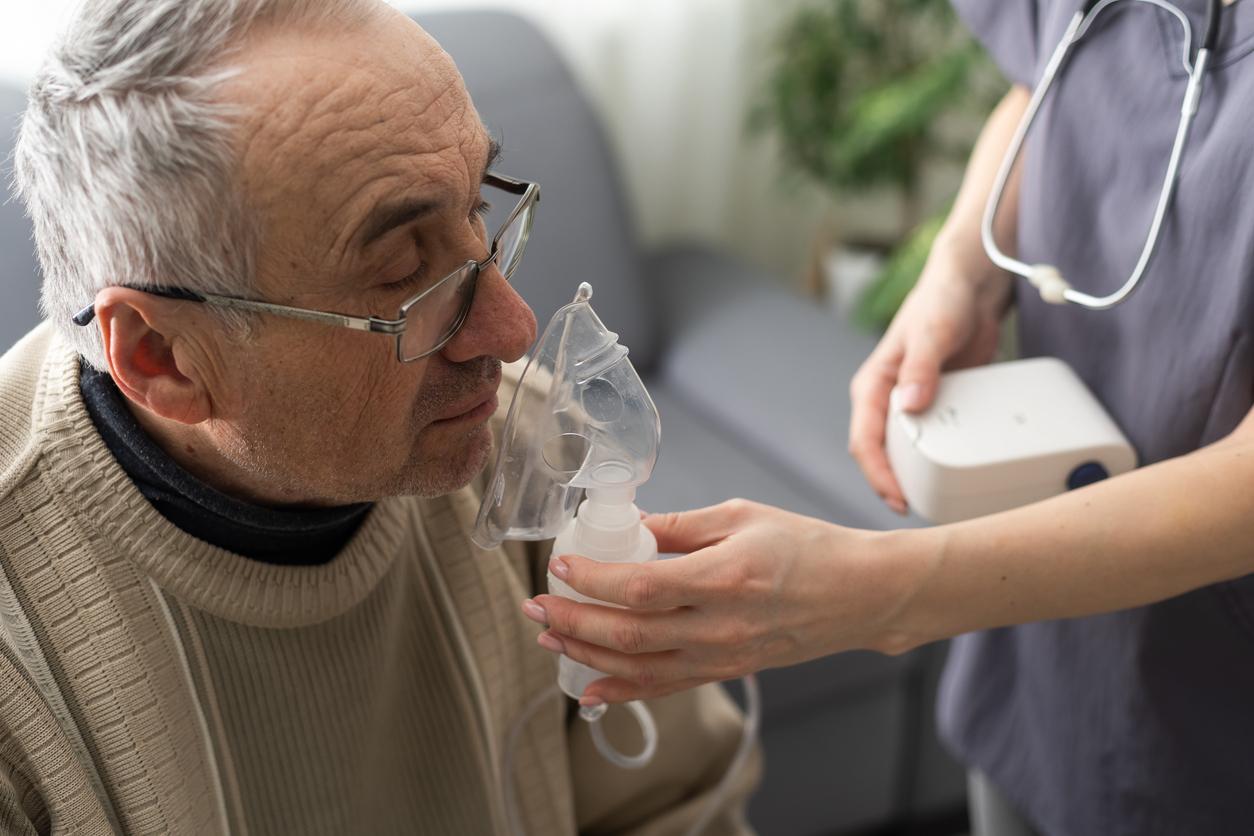SUMMARY :
- Heart failure: what is it?
- What are the symptoms of heart failure?
- Heart failure: who? at what age ?
- How is she diagnosed?
- How is heart failure treated?
Heart failure: what is it?
The heart is a muscular pump that supplies oxygen-rich blood to the organs that need it to function. We say that there is heart failure when the heart loses its muscle strength and this pump function. It then no longer manages to provide sufficient blood flow to meet the body’s metabolic needs.
When the heart pump is struggling, the blood pressure increases upstream of the heart, therefore in the lungs, hence shortness of breath, then in the liver and venous system, hence edema and weight gain. Decreased blood flow explaining fatigue.
After a while, the impact on the quality of life becomes really annoying. We find ourselves limited in our daily activities. Difficult to take a walk in the park with your children or grandchildren, difficult to go to a restaurant, to travel … until the day when a “push” occurs heart failure“which leads to the hospital.
“When we are hospitalized, it’s brutal, we don’t know what is happening to us, we don’t ask the right questions”, remembers Philippe Muller, himself affected and creator ofSIC association (Support for heart failure) to help patients take charge on a daily basis.
What is the life expectancy? This strongly affects the quality of life of those affected and causes the death of 23,000 patients each year in France (ie 7 times more than road accidents). Despite a significant reduction in mortality, the 5-year survival rate is only 50%.
What are the symptoms of heart failure?
One acronym, four letters, is the idea that cardiologists had to make known the symptoms of heart failure : EPOF comes with:
- its E for Shortness of breath on exertion,
- his P for Weight gain (from 2 to 3 kg in a few days),
- its O for Edema, i.e. swelling of the ankles or feet,
- and his F for Tired for a little effort, like going to open the door to someone ringing the doorbell. Symptoms that do not necessarily evoke the heart and that we may or may not have together. Hence the frequent delay in diagnosis.
However, the diagnosis of heart failure is often difficult because the most common symptoms (fatigue, shortness of breath, nocturnal cough) are not specific to the disease.
Other signs should prompt you to see the doctor: difficulty breathing when lying down, a nighttime cough.
A significant and rapid weight gain with edema of the lower limbs is also a sign that should alert. Finally, in the very old, disorientation, confusion, falls and loss of autonomy can also be associated with heart failure.
Heart failure: who? at what age ?
This disease affects 2.3% of the adult population globally (approximately 1 million people) but the older we get in age, the more the frequency of the disease increases: it exceeds 15% in those over 85 years old. Due to the aging of the population, in 10 years the number of people suffering from heart failure has increased by 30%.
“Heart failure is the ultimate culmination of all cardiovascular disease” explains Prof. Richard Isnard, cardiologist at Pitié Salpétrière (Paris). “It develops mainly in people who have had a heart attack, who suffer from high blood pressure, or who have heart disease or valve disease (coronary artery disease, valve disease, arrhythmia…) “.
Finally, certain congenital or genetic heart diseases also predispose to the development of heart failure.
How is she diagnosed?
The diagnosis of heart failure is evoked either during a consultation, in the presence of symptoms suggestive of the disease, or in the hospital on the occasion of a first decompensation (the failure of certain mechanisms of the organism) or an acute incident (heart failure is the leading cause of hospitalization after 65 years).
When the disease is discovered, the doctors will assess its severity, look for possible aggravating factors (high blood pressure, excessive alcohol consumption, smoking, obesity, sedentary lifestyle…) and estimate the prognosis.
The results of this assessment make it possible to define the treatments which are the most suitable. “The current treatments aim to improve the quality of life of the patient by relieving the symptoms and allowing him to carry out the activities of daily living as well as slowing the progression of the disease. In addition to the pharmacological treatment, well codified and effective, the follow-up of heart failure always includes the prescription of a new lifestyle with a adapted physical activity regular and new eating habits “ insists the cardiologist.
How is heart failure treated?
the heart failure treatment most often involves taking three drugs to support the heart and control blood pressure. But the first recommendation of doctors is to adopt a little salty food (prefer pepper and spices, reduce cold cuts and cheeses …).
Sure, stop smoking, limit wine to one or two glasses a day, two days a week. Walking, recommended every day, at your own pace, will be stopped in case of cold sweats, nausea and obviously pain in the chest.
With nearly 30% increase in patients for ten years, heart failure is exploding. And it does not only affect the over 60s. Being short of breath after going up two floors is normal if we lack training. If that does not pass in a few minutes, it is necessary to consult, even at 40 years! Because at any age, you can improve the performance of your heart.
Read also :
- The real enemies of women’s hearts
- Broken heart syndrome: a fairly common fatal disease
- Stroke: the causes and symptoms
- Myocarditis: what is it? what symptoms?
- AIT: you must consult urgently


















